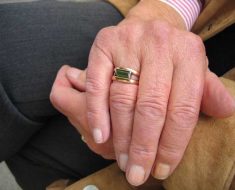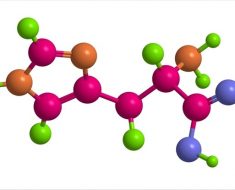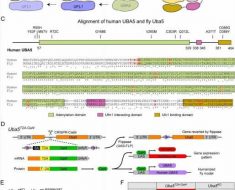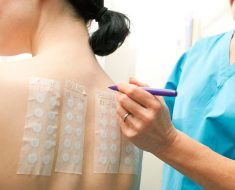In a press release, Takeda announced that its vaccine candidate, TAK-003, reduced illnesses from dengue by 62% and prevented 83.6% of hospitalizations in its phase 3 TIDES trial, which enrolled more than 20,000 children and teens in Latin America and Asia.
Dengue is a mosquito-borne virus that threatens 40% of the world’s population. It infects about 400 million people each year and kills 22,000.
The vaccine’s efficacy was assessed at 36 months’ follow-up and varied by serotype. Dengue 2 makes up the backbone of the vaccine. Unsurprisingly, the vaccine works best against this serotype. Efficacy declined over time, from 80% at 1 year to 73% at 18 months and 62% at the 3-year mark, so it is expected that a booster dose will need to be given.
The other promising news is that no serious adverse events were seen at this 3-year mark. The previous major dengue vaccine candidate was Sanofi’s Dengvaxia. It was released in 2016 after a $1.5 billion investment in developing the vaccine over 20 years. The license for the vaccine was revoked in 2019 after a number of children became ill and several allegedly died. Review by an independent panel, the PGH Dengue Investigative Task Force, found that three deaths were causally associated with the vaccine, but two of those deaths may have been due to vaccine failure.
The spectrum of disease from dengue is wide — the first illness can range from being asymptomatic to a serious, miserable condition known as “breakbone fever.” But it’s the second infection that’s most likely to kill. This is thought to be because of antibody-dependent enhancement (ADE), which, counterintuitively, can cause more complications.
There was a range of immune responses to the Sanofi vaccine. With high antibody levels, patients were protected from reinfection. With low levels, they were not. With an intermediate level of antibodies, patients’ condition worsened, and they developed hemorrhagic fever, capillary leak syndrome, and shock.
What really killed the Sanofi vaccine was that it acted like the primary infection, and the children produced antibodies. When they acquired a second infection, many became more ill, and there was a 0.5% increased risk for hospitalization. Ultimately, the US Food and Drug Administration approved Dengvaxia, but only for children who had previously been infected with dengue.
Derek Wallace, VP, Dengue Global Program leader at Takeda, told Medscape Medical News that Takeda “made sure that we could assess what was happening in seronegatives from the very beginning.” They found that vaccine protection was “even more so against dengue that requires hospitalization in that seronegative population” except for the dengue 3 serotype. They do not yet have an explanation for why it does not work well for that serotype.
Thus far, the Takeda vaccine has the advantage of providing protection against dengue without clinicians’ having to know whether the patient has previously had dengue. Although it is reassuring that no safety signals have yet been seen, a recent review suggests that 5 years might be a preferable duration of follow-up.
Duane Gubler, ScD, founding director of the Program on Emerging Infectious Diseases, Duke University–Graduate Medical School, Singapore, has decades of experience with dengue and is one of the patent holders of the Takeda vaccine. He was not in involved in its clinical trials. He explained to Medscape Medical News that the antibody-dependent enhancement “is a rare event…probably less than about 1% of the time.” Curiously, “you [almost] never see severe disease or fatalities associated with the third or the fourth infection,” he added. Gubler stressed that “the solution [to dengue] is a combination of vector control to reduce the population density of mosquitoes and, at the same time, vaccination that increases the herd immunity in the population.”
Wallace also told Medscape that the TAK-003 vaccine “is the first-ever product that’s been reviewed in parallel between the EMA [European Medicines Agency] and Article 58,” which allows consideration for countries outside of the European Union. “We have Argentina, Brazil, Mexico, Colombia, Thailand, Singapore, Sri Lanka, Indonesia, Malaysia. So really there is a very real demand for some solution to the very real problem of dengue.”
Medscape asked both Wallace and Gubler for their thoughts about whether there would be fallout from the failure of the Sanofi vaccine with regard to acceptance of TAK-003 and COVID-19 immunization efforts.
Gubler said that before introducing a vaccine, “Number one, we educate the community well before we do it. Number two, we educate the medical community. And number three, we have enhanced surveillance, clinical and serologic/virologic surveillance, so that if there are any breakthroughs — if there are any safety profiles that arise — we’ll be able to pick them up. If they do arise, they’ll be few in number, and if we’ve got the right infrastructure in place, it’ll be safe.”
The response from Takeda’s Wallace was more strategic. “Our approach to dengue vaccine development has been to design and conduct a study that gives us a really granular view of the safety and efficacy of a vaccine. And this enables a high degree of understanding of the vaccine profile. Once we have that, we can talk with regulators about whether or not they think this vaccine should be available in their countries…. The decision of a country to implement a public program is really a decision for that country. Our role is to provide them with as much transparent information about the way a vaccine performed so that their decisions can be informed.”
Wallace is a Takeda employee. Gubler is a patent holder of the Takeda vaccine and has provided advice and consultation on vaccine development to Sanofi Pasteur, Merck, and Takeda.
Judy Stone, MD, is an infectious disease specialist and author of Resilience: One Family’s Story of Hope and Triumph Over Evil and of Conducting Clinical Research, the essential guide to the topic. You can find her at drjudystone.com or on Twitter @drjudystone.
For more news, follow Medscape on Facebook, Twitter, Instagram, and YouTube.
Source: Read Full Article





